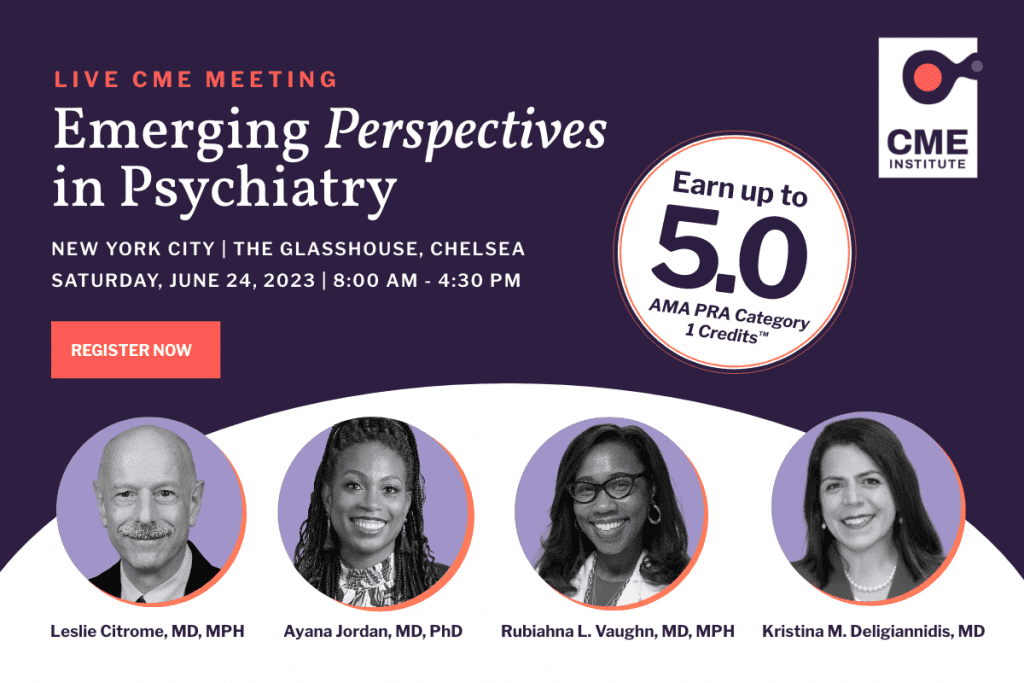Early-onset dementia is common. Patients in this category make up about one-third of dementia diagnoses. But, as a new The Primary Care Companion for CNS Disorders demonstrates, differential diagnosis can be challenging.
Case Study
The patient in this clinical vignette was a 50-year-old Black man with a history of myriad health problems including hypertension, diabetes, and smoking. He presented to a Texas clinic with progressive cognitive and functional decline, memory problems, falls, personality and behavioral changes, depressed mood, apathy, anhedonia, belligerence, hyperphagia, hypersomnia, and poor self-care.
During his initial examination, the patient seemed uninterested, awake, aware of his surroundings, but slow in answering questions. His scores on cognitive evaluations were low, indicating impairment. His walking was abnormal, with a slow and wide gait and reduced arm movement. Tests for dementia didn’t show any significant findings, except for positive results indicating an infection.
DDx
The clue to his diagnosis was revealed in his medical history when his caregiver mentioned he had been treated for syphilis several decades ago. Further investigation showed long-term damage to small blood vessels in the brain that exceeded the expected level for his age. During lumbar puncture, his cerebrospinal fluid did not react to a test for venereal disease, but his protein level was high enough to suggest the possibility of neurosyphilis.
Neurosyphilis is a condition caused by the sexually transmitted disease, syphilis. When syphilis bacteria invade the nervous system, including the brain and spinal cord, they can damage nerves, and severely affect their ability to function. As is the scenario in this case, it can also cause neurological symptoms such as cognitive decline, difficulty with coordination and movement, changes in behavior or mood, and sensory abnormalities. Without proper treatment, neurosyphilis leads to serious complications that are sometimes irreversible. Unfortunately, this patient only showed mild improvement after receiving therapy.
The authors of the study note how difficult it was to make this differential diagnosis. Often symptoms from neurosyphilis don’t appear for more than twenty years after the initial syphilis infection, making diagnosis complex. However, they stressed that some causes are treatable, so timely diagnosis is crucial to prevent cognitive decline and loss of function.
They also point out that neurosyphilis is relatively rare in most Western countries compared to the past but now on the rise. They urge clinicians to consider it when evaluating younger dementia patients.
“Primary and secondary syphilis cases have been on the rise since 2000,” they wrote. “It is more prevalent in men, and 75 percent of infected men are homosexual.”
IN OTHER PSYCHIATRY AND NEUROLOGY NEWS THIS WEEK
- After 84 years, The Journal of Clinical Psychiatry has a bold new look! See what Editor in Chief Marlene Freeman has to say about the redesign.
- It’s time for a refresher in how to use and interpret relative risk and odds ratios.
- Medical students are at risk for internet addiction disorder and other mental health problems.
- Daydreaming is often creative, but sometimes strays into maladaptive territory that can derail normal functioning.
- Long-acting injectable antipsychotics offer convenience, improved adherence, and reduced relapse rates in schizophrenia. You should consider them, even in early diagnosis.
- The American Society of Clinical Oncology (ASCO) conference took place this week in Chicago. This year’s theme was “partnering with patients.” Our Tweet of the Week highlights just one of the many promising studies that focused on the emotional health and wellbeing of patients and caregivers. Look for the hashtag #ASCO23 to follow conference coverage.
Important discussion #cancer #survivorship challenges and opportunities in sexual health. @matteolambe Dr. Terri Lynn Woodard @kristinrojasmd #ASCO23#sexualhealth #fertilitypreservation #bonehealth pic.twitter.com/opxL8yHZkv
— Breastcancer.org (@Breastcancerorg) June 5, 2023
NEW AT CME INSTITUTE
Save 50% on the Emerging Perspectives in Psychiatry live CME meeting with code WMR50! Join us in New York City on June 24 to earn free 5.0 CME credits and learn from leading experts on schizophrenia, ADHD, addiction, MDD, and PPD.





